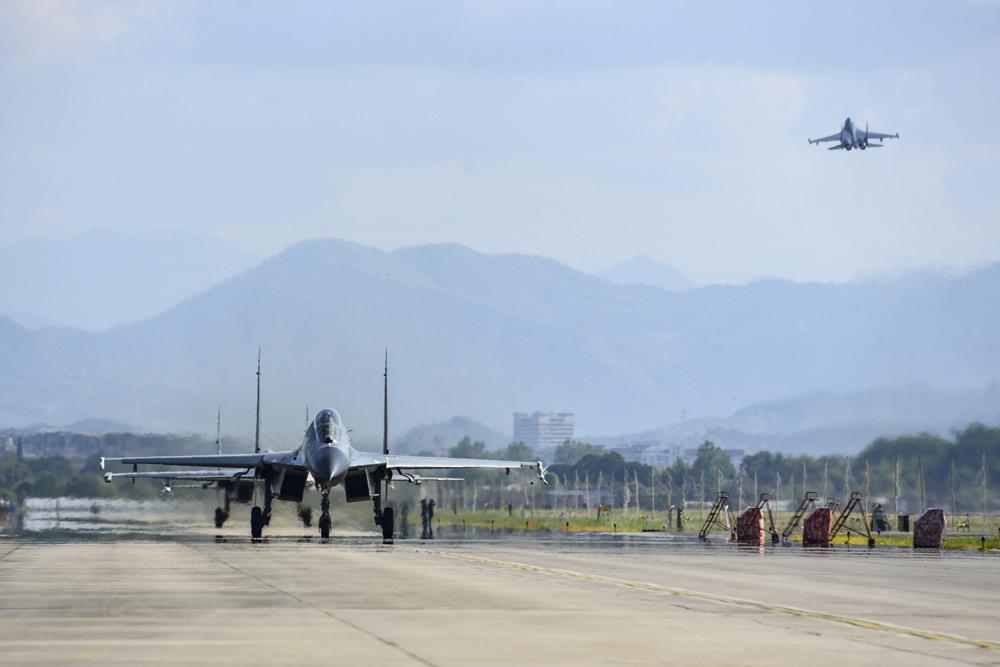FILE – In this photo released by China’s Xinhua News Agency, air force and naval aviation corps of the Eastern Theater Command of the Chinese People’s Liberation Army (PLA) fly planes at an unspecified location in China, Aug. 4, 2022. The Chinese air force is sending fighter jets and bombers to Thailand for a joint exercise with the Thai military on Sunday, Aug. 14, 2022. (Fu Gan/Xinhua via AP, File)
BANGKOK (AP) — The Chinese air force is sending fighter jets and bombers to Thailand for a joint exercise with the Thai military on Sunday.
The training will include air support, strikes on ground targets and small- and large-scale troop deployment, the Chinese Defense Ministry said in a statement posted on its website.
China’s expanding military activities in the Asia-Pacific region have alarmed the United States and its allies and form part of a growing strategic and economic competition that has inflamed tensions between the world’s two largest economies.
U.S. Defense Secretary Lloyd Austin visited Thailand in June as part of an effort to strengthen what he called America’s “unparalleled network of alliances and partnerships” in the region.
The Falcon Strike exercise will be held at the Udorn Royal Thai Air Force Base in northern Thailand near the border with Laos. Thai fighter jets and airborne early warning aircraft from both countries will also take part.
The training comes as the U.S. holds combat drills in Indonesia with Indonesia, Australia, Japan and Singapore in the largest iteration of the Super Garuda Shield exercises since they began in 2009.
It also follows China’s sending warships, missiles and aircraft into the waters and air around Taiwan in a threatening response to a visit by U.S. House Speaker Nancy Pelosi to the self-ruled island, which China claims as its territory.
Kurt Campbell, a top advisor to President Joe Biden on the Indo-Pacific, said Friday that the U.S. would take resolute steps to support Taiwan, including sending warships and aircraft through the 160-kilometer (100-mile) wide waterway that separates Taiwan and China.
“We’ll continue to fly, sail and operate where international law allows, consistent with our longstanding commitment to freedom of navigation,” he said in a call with reporters. “And that includes conducting standard air and maritime transits through the Taiwan Strait in the next few weeks.”
Copyright 2021 Associated Press. All rights reserved.


